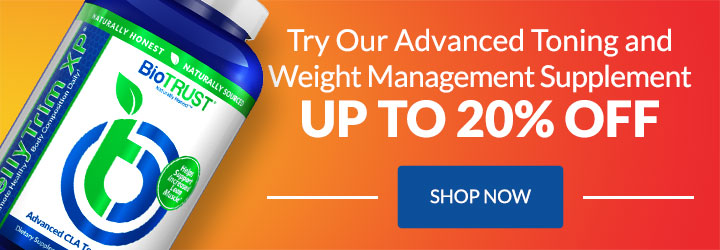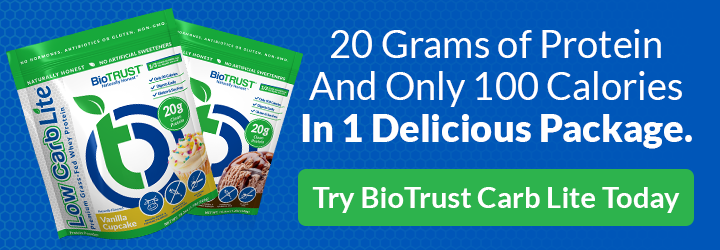How to Increase Testosterone Naturally (9 Simple Tips)

One of the questions I get asked most frequently is how to increase testosterone naturally. It makes sense. After all, testosterone is often considered the apex of manhood. It is critical for sexual behavior and function, reproduction, libido, and much, much more including:1
- Muscle mass and strength
- Bone mineral density
- Vigor and energy levels
- Feelings of well-being
- Fat burning and fat distribution
- Body composition
- Immune function
- Production of red blood cells
- Production of sperm
- Healthy metabolic function
- Glycemic control
- And much more
And, ladies, I actually hear this from women more often than you might think. And, no, it’s not just because they want to help out the special men in their lives. While men certainly have more, both women and men need healthy levels of testosterone. In fact, women’s testosterone levels are closely linked to libido and sexual function. Heck, just thinking about sex increases levels of testosterone in women, highlighting its importance in female sexual behavior.
Below are some of my top tips to increase testosterone naturally. As you’ll see, the not-so-sexy truth is that it typically comes down to making healthier lifestyle choices and changes. In other words, if you want to increase testosterone naturally, it’s likely going to come down to eating better, exercising smarter, sleeping better, and taking better care of yourself overall. Please keep in mind, if you’re doing everything “right” and are still having trouble, see your doctor.
How to Fight Back Against Andropause
In general, total testosterone in otherwise healthy males is low in pre-puberty, rises beginning around age 11, and peaks at the ripe age of 19.2 After that, however, we start to see a gradual reduction in testosterone with age. On average, there’s about a 15% drop in total testosterone levels from the age of 20 to 40. That’s roughly 0.7% per year, which may not seem like much, but it sure adds up. And it’s no wonder so many men over 40 are hellbent on looking for ways to increase testosterone naturally!
Although one recent study found no progressive decline in testosterone in middle-aged and older men—often referred to as andropause—other studies have suggested that testosterone levels decrease by 1 – 2% per year after the age of 40.3 WOW! To put it in perspective, the average amount of testosterone in a 75-year-old man averages about 66% of that of a man 25 years young. Roughly 1 in 4 men over 40 is thought to be dealing with andropause. It’s estimated that 50% of men over 80 are dealing with low testosterone.2–4
There are multiple reasons andropause, age-related reductions in testosterone, and healthy testosterone levels in general attract so much attention and debate. For starters, the “normal” ranges are sometimes disputed for a variety of reasons, such as differences among populations—not to mention that the upper end of “normal” is 3.5-fold higher than the lower threshold.5 Plus, many people look at total testosterone (of which 98% is “bound” or inactive, so to speak) instead of the more biologically active “free” testosterone (only about 2% of total).2
Controversy aside, if you or someone you care about are experiencing any of the following issues, it’s probably time to take serious inventory and make some changes to your lifestyle. (Great news: There’s a bunch of suggestions below to help increase testosterone naturally!)
What are the Symptoms of Low Testosterone?
- Decreased interest in sex
- Equipment not working as expected (e.g., absence of morning erections)
- Difficulty building or maintaining muscle
- Feeling weak or losing strength
- Gaining fat (particularly in the belly)
- Moodiness
- Irritability
- Nervousness
- Feeling blue
- Feeling tired or fatigued
- Lacking motivation
- Difficulty concentrating
- Difficulty remembering things
- Trouble sleeping
Of course, if you’re reading this, then there’s a good chance you—or someone you care about—are probably experiencing some of these issues. After all, that’s why you’re reading about how to increase testosterone naturally.
However, it’s worth pointing out all these things for a couple of reasons. First, testosterone has far-reaching effects on many aspects of health and metabolism. It’s not just about sex and muscles. Secondly, many of these issues are not unique to andropause or low levels of testosterone. In other words, there could be other health problems at play.
So, to reiterate what I mentioned above, if you are dealing with any serious health issues—particularly in spite of doing everything “right”—please work with a team of qualified healthcare specialists. It’s also imperative to point out that suboptimal levels of testosterone are not just a concern for men over 40. Healthy young men can be affected too. If you think you may be, swallow your pride and see a doctor. It’s even less normal for you.
Okay, enough beating around the bush already. Let’s get practical with some tips to increase testosterone naturally!

Increase Testosterone Naturally with These 9 Easy Tips
Tip 1: Don’t fear the fat. Higher fat (and even cholesterol, which is the building block for T) intake—specifically total fat, saturated fat, and monounsaturated fats—is one of the most tried and true ways to increase testosterone naturally. In a seminal study published in the prestigious Journal of Applied Physiology, researchers from Penn State University found men who consumed 30% of their calories from fat had 33% and 67% higher levels of testosterone than men who consumed only 20% or 15% of their calories from fat, respectively.7
With that in mind, if you want to increase testosterone naturally, a good starting point would be to make sure you’re consuming 30 – 40% of calories from fat. Make sure you’re consuming eggs, coconut oil, pasture-raised meat and butter, olives and olive oil, avocados, and other healthy fats.
Watch out for processed foods, however, which contain junky oils rich in the wrong fats (polyunsaturated). Not surprisingly, the typical Western-style diet predicated on an abundance of processed “foods” appears to be a key contributor to low testosterone levels.8 Yet another reason to ditch the junk food in favor of real, whole foods.
Speaking of which, poor glycemic control dramatically increases the odds of low testosterone. In fact, one study showed that men with poor carbohydrate tolerance were over 3 times more likely to have low levels of testosterone.3 That doesn’t mean you need to go ultra-low-carb (although that might help). But it does mean you would probably be best off following a controlled-carb diet, and of course, eliminate junk food (added sugars, refined carbohydrates) and get your tail moving.
Tip 2: Drop the fat. Wait, what? Here, I mean lose excess fat because higher levels of bodyfat (especially belly fat) correlate with lower levels of testosterone. In fact, obesity is strongly linked to low testosterone levels in men.9 For one, bodyfat produces an enzyme (called aromatase), which is responsible for the conversion of testosterone to estrogen.10 Getting and staying lean, however, can help raise T levels.
Keep in mind, however, that severely restricting calories can lead to significant reductions in testosterone.11 In other words, a crash diet is not the best way to increase testosterone naturally. In fact, it may make matters worse. Rather, a more gradual approach that also protects calorie-burning lean muscle may be ideal. Speaking of which…
Tip 3: Lift weights. One way to get lean is to lift weights, which (ironically) also boosts testosterone levels. In general, strength training programs that are higher in volume and moderate- to high-intensity as well as high-intensity interval training seem to increase testosterone naturally the most.12,13 On the other hand, too much cardio is a no-no, as it is a surefire way to lower testosterone levels as can overtraining.13,14
Tip 4: Get outside. Vitamin D (which is a prohormone) goes hand-in-hand with testosterone. In a study published in the European Journal of Endocrinology, researchers from the University of Manchester in England found that men with low levels of vitamin D (defined by blood testing below 50 nmol/L) had significantly lower levels of testosterone.15 Overall, they found that vitamin D levels were positively associated with both total and free testosterone.
Additional studies have also shown a positive correlation between vitamin D levels and testosterone, with low levels of vitamin D being associated with low levels of testosterone.16–18 Even more, research shows a distinct seasonal variation in testosterone levels that closely resembles the seasonal variation in levels of vitamin D, a consequence of seasonal differences in sunlight-induced vitamin D production in the skin.18,19
Along those lines, if you want to increase testosterone naturally, there may not be a more “natural” way than getting outside with your bare skin exposed to the sunlight as frequently as you can, and if/when that’s not an option, supplement with vitamin D. In one 12-month randomized controlled trial, Austrian researchers found that males supplementing with 3,332 IU/day of vitamin D had a significant increase in total testosterone, bioactive testosterone, and free testosterone levels.20
Tip 5: Get your minerals. Two minerals that play key roles in maintaining healthy levels of testosterone are magnesium and zinc. For starters, magnesium is involved in over 300 enzymatic reactions and biological processes, and it plays a key role in testosterone production.21 In a study of 400 older men, University of Parma researchers found that magnesium levels were strongly associated with testosterone levels (i.e., greater magnesium = higher testosterone).22
Additionally, researchers from Turkey found that men (both sedentary and active) supplementing with magnesium for 4 weeks experienced a significant increase in both free and total testosterone.23 Interestingly, French researchers have found that magnesium may help increase levels of “free” bioactive testosterone by reducing how much “total” testosterone is bound to a molecule called sex hormone-binding globulin (SHBG), which basically renders testosterone inactive.24 Dark green leafy vegetables, legumes, nuts, seeds, and whole grains are all good sources of magnesium.
Like magnesium, zinc is an essential mineral that is involved in hundreds of metabolic reactions in the body. Among a sample of healthy men, Wayne State University researchers found that testosterone levels were significantly correlated to zinc concentrations. What’s more, the researchers found that when they deprived the men of zinc, their testosterone levels plummeted, and when men who were marginally deficient supplemented with zinc for 6 months, their testosterone levels significantly increased.25
Along those lines, it’s very much worth pointing out that zinc is one of the most common nutrient deficiencies, especially among athletes and folks who are recreationally active.26–28 With all of that in mind, it’s important to make sure you’re consuming plenty of zinc if you want to increase testosterone naturally. The best food sources are pumpkin seeds, sesame seeds, seafood, beef, spinach, and cashews.
Additionally, selenium may also play an important role in regulating testosterone levels. In one study published in the Journal of Urology, researchers from Iran found that men supplementing with selenium daily for 26 weeks significantly increased testosterone levels.29 Brazil nuts are a fantastic source of selenium. In fact, research shows that Brazil nuts are more effective than supplements at raising blood levels of selenium.30
Tip 6: Chillax. According to Naturopathic Urologist Dr. Geo Espinosa, “The fact of the matter is that [the stress hormone] cortisol castrates.” Put a little less graphically, there tends to be an inverse relationship between cortisol and testosterone, as stress and increased cortisol typically have a negative (i.e., lowering) effect on circulating levels of testosterone.31 Basically, stress forces the body to “steal” the building blocks for testosterone to produce more stress hormones like cortisol.
Even though it may not sound all that masculine, stress management is a key piece of the puzzle when you’re looking to increase testosterone naturally. Practice deep breathing, take a walk outside, meditate, and practice yoga. Also, you may consider experimenting with adaptogenic herbs such as Ashwagandha, which has been shown to increase testosterone levels as well as muscle mass and strength.32,33
Tip 7: Count sheep. Need another reason to get more sleep? Sleep is a linchpin in the formula to increase testosterone naturally. You see, sleep is a “magic” time when the body creates and releases many hormones, including a majority of its testosterone.34 According to research published in the aptly-named journal Sleep, total sleep time predicts morning levels of testosterone.35 In other words, more sleep equals higher testosterone levels.
What’s more, in a study published in the prestigious Journal of the American Medical Association, researchers from the University of Chicago found men who slept less than five hours a night for just ONE week had significantly lower levels of testosterone compared to when they had a full night’s sleep. Restricted sleep resulted in a whopping 15% reduction in testosterone levels!36
So, make sure you optimize your sleep hygiene and get in bed at a decent time. After all, you can’t log adequate sleep if you don’t give yourself enough time in bed.
Tip 8: Pull it out. Get your mind out of the gutter. I’m talking about taking your phone out of your pocket. It’s basically microwaving your testicles. Your phone (as well as your wi-fi, TV, and other electronics) emits “dirty” electromagnetic fields (EMFs), which increase free radical production and can have negative effects on testosterone levels (and fertility for that matter).37 Keep your phone on airplane mode whenever you can, and if you can avoid wi-fi, that would be great too.
Tip 9: Watch out for “endocrine disruptors.” Estrogen-mimicking chemicals (such as BPA, phthalates, parabens, and pesticides), often referred to as “endocrine disruptors” or “environmental estrogens,” are ubiquitous and may reduce testosterone levels (and adversely affect fertility).38–40 They’re especially prominent in plastics and personal care and grooming products, which even the most health-conscious folks use without question.
If you want to increase testosterone naturally, you’ll want to avoid canned foods and receipts (which contain BPA), pretty much all plastics (because they contain BPA and/or phthalates), and synthetic fragrances (which contain phthalates, yet they don’t have to say so). You’ll also want to keep a close watch out for parabens (in most personal care products) and choose organic vegetables and fruits whenever possible.
Increase Testosterone Naturally & Bring Sexy Back
Like I said, if you want to increase testosterone naturally, the formula isn’t all that sexy. But if you want to bring your sexy back, so to speak, the formula isn’t all that complicated. Eat a balanced diet founded on whole foods and plenty of healthy fats and nutrient-dense foods. Move your body and make sure you do some form of strength training. Get outside in the sunshine whenever possible. Prioritize your sleep. Eliminate your exposure to environmental toxins (including endocrine disruptors and dirty EMFs). Practice stress management. And remember, if this is something you’ve been struggling with, please see and work with a qualified healthcare specialist.








